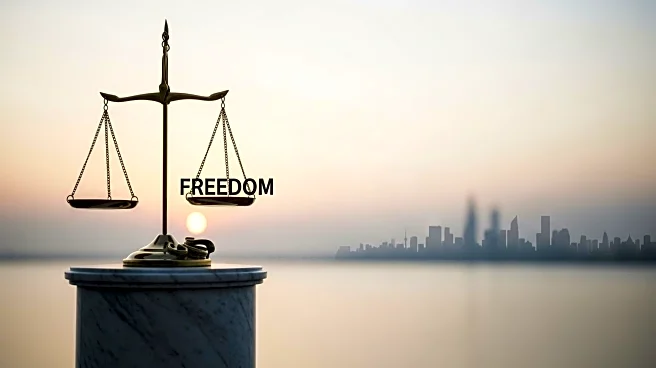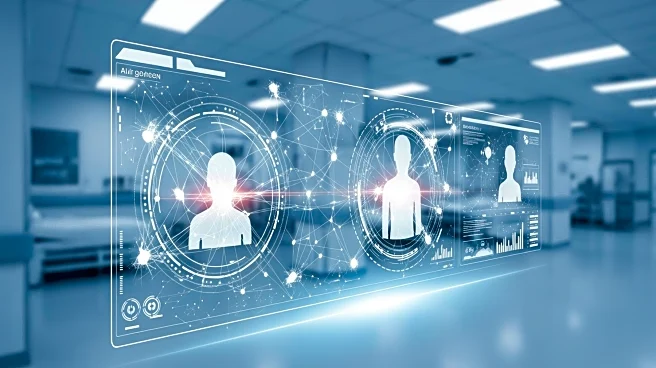What is the story about?
What's Happening?
Portland's City Attorney, Robert Taylor, has accused federal officers of violating the constitutional rights of demonstrators at the U.S. Immigration and Customs Enforcement (ICE) facility in Portland, Oregon. In a letter, Taylor criticized the U.S. Department of Justice's Civil Rights Division for allegedly ignoring the excessive use of force by federal officers against peaceful protesters. The letter was a response to a DOJ investigation into the Portland Police Bureau's treatment of right-wing media figures at recent protests. Taylor claims that federal officers are engaging in 'viewpoint discrimination' by targeting demonstrators based on their speech content, while favoring those who support the Trump administration. The situation escalated when federal officers used tear gas, pepper balls, and flash-bangs against protesters, which the Department of Homeland Security justified as necessary to clear the facility's driveway.
Why It's Important?
This development highlights ongoing tensions between local and federal authorities regarding protest management and civil rights. The accusations of 'viewpoint discrimination' suggest a potential misuse of power by federal officers, which could undermine public trust in law enforcement and the federal government. The situation also reflects broader national debates over the balance between security measures and the protection of constitutional rights, particularly the First and Fourth Amendments. The outcome of this conflict could influence future federal and local law enforcement interactions and set precedents for handling protests across the U.S.
What's Next?
The DOJ's investigation into the Portland Police Bureau and the city's actions could lead to penalties or changes in how protests are managed. The federal government's response to Taylor's accusations and the ongoing legal proceedings, including the temporary block on National Guard deployments, will be critical in determining the next steps. The situation may prompt further legal challenges and public scrutiny, potentially affecting future policy decisions and law enforcement practices.















